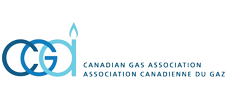News Release
QUEST, CGA, and CBA Release the National Renewable Natural Gas Handbook for Canadian Municipalities
QUEST, CGA, and CBA Release the National Renewable Natural Gas Handbook for Canadian Municipalities
FOR IMMEDIATE RELEASE
OTTAWA, May 12, 2021 – Today, QUEST, the Canadian Gas Association (CGA), and the Canadian Biogas Association (CBA) released the national Renewable Natural Gas (RNG) Handbook for Canadian Municipalities.
RNG (ie. biomethane) is upgraded biogas produced from organic waste from farms, forests, landfills, and water treatment plants. The gas is captured, cleaned, and injected into pipelines to be used in the same way as natural gas from any other source.
Given the availability of biogas, municipalities may be in an excellent position to implement RNG systems. RNG presents a unique opportunity not only to tackle GHG emissions and improve local air quality, but also to advance a circular economy for Canadian municipalities. When implemented on a municipal scale, RNG can be used in local gas utility distribution systems, given its chemical similarity to fossil natural gas.
“With communities in Canada accounting for 60% of energy end-use and 50% of emissions, there is a significant opportunity for communities to contribute to Canada’s emission reduction targets,” said Tonja Leach, Executive Director at QUEST. “Smart Energy Communities and regions that leverage their waste streams as low-emission energy inputs, such as RNG, contribute directly to reducing emissions, and benefit from improved local air quality, local economic growth and jobs.”
Today, natural gas meets 35 per cent of Canadians’ energy needs through a world-class network of underground infrastructure. “By blending RNG into the natural gas delivery system, meaningful emissions reductions can be made using one of the most affordable renewable fuel options, while still providing Canadians with the reliable energy they depend on for their everyday lives,” said Timothy M. Egan, President and CEO of the Canadian Gas Association. “Canada’s natural gas delivery industry is committed to working with communities across the country to maximize the environmental and economic development opportunities that can come from RNG development.”
Ideal for municipal officials and staff, the RNG Handbook reviews RNG sources, production, and benefits, and provides an outline for RNG project planning and implementation.
“With Canada tapping only 13% of its biogas resources, there is significant potential for municipalities to reduce GHGs by converting food and organic waste to value-added products, such as RNG,” said Jennifer Green, Executive Director at the Canadian Biogas Association. “Biogas and RNG can leverage existing infrastructure, such as wastewater treatment facilities, landfills, and natural gas pipelines to manage waste and foster a circular economy.”
The energy content of RNG is within the range of 36.0 MJ/m3 to 41.3 MJ/m3, and its other constituents are within the acceptable limits of the natural gas distribution network. Municipalities are encouraged to engage with their local gas utility for the required specifications to inject RNG into their gas network.
QUEST, CGA, and CBA will hold a webinar on May 25th to present the handbook and how the Canadian municipalities can benefit from RNG.
ABOUT CGA
The Canadian Gas Association is the voice of Canada’s natural gas delivery industry. Its membership includes natural gas distribution and transmission companies, equipment manufacturers, and suppliers to the industry. Our utility members are active in eight provinces and one territory and meet 35 per cent of Canadians’ energy needs through a network of over 566,000 kilometers of underground infrastructure. This infrastructure can also be used to deliver renewable gases including renewable natural gas and hydrogen, in order to contribute to Canada’s greenhouse gas emission reductions. Today, over 7.2 million customer locations representing approximately two-thirds of Canadians, rely on natural gas for clean, affordable and reliable heating and power.
ABOUT CBA
The Canadian Biogas Association is a member-driven industry organization that is focused on building the biogas and RNG industry to its fullest potential in Canada. With over 150 members representing farmers, municipalities, technology developers, consultants, utilities, finance and insurance firms, and other sector organizations, we provide a uniquely strong perspective in advocating for opportunities, programs and policies as well as inform, educate and help connect like-minded companies and individuals with an interest in reducing more greenhouse emissions and tapping more clean energy from Canada’s biogas and RNG resources.
MEDIA CONTACT
Richard Laszlo
Senior Associate at QUEST
Toll Free: 416.509.0292
[email protected]
QUOTES

Tonja Leach, Executive Director at QUEST
Read the quote
“With communities in Canada accounting for 60% of energy end-use and 50% of emissions, there is a significant opportunity for communities to contribute to Canada’s emission reduction targets. Smart Energy Communities and regions that leverage their waste streams as low-emission energy inputs, such as RNG, contribute directly to reducing emissions, and benefit from improved local air quality, local economic growth and jobs.”

Timothy M. Egan, President and CEO at the Canadian Gas Association
Read the quote
“By blending RNG into the natural gas delivery system, meaningful emissions reductions can be made using one of the most affordable renewable fuel options, while still providing Canadians with the reliable energy they depend on for their everyday lives. Canada’s natural gas delivery industry is committed to working with communities across the country to maximize the environmental and economic development opportunities that can come from RNG development.”

Jennifer Green, Executive Director at the Canadian Biogas Association
Read the quote
“With Canada tapping only 13% of its biogas resources, there is significant potential for municipalities to reduce GHGs by converting food and organic waste to value-added products, such as RNG. Biogas and RNG can leverage existing infrastructure, such as wastewater treatment facilities, landfills, and natural gas pipelines to manage waste and foster a circular economy.”
Sign Up
Join the Conversation!
Sign up to get the latest news and updates about QUEST Canada events and receive QUEST Canada's monthly newsletter.



